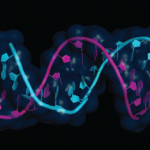“Ultimately, the goal is to understand the pathway of RA so that we can cure it or put it into remission. Perhaps we even can use the information we glean to treat other diseases,” says Dr. Firestein. “The most interesting advances come when people think outside the box. Good research requires teamwork and experienced investigators who are willing to mentor novice peers,” he says. “It is critical to mentor young investigators and help them to develop their research careers. It is unlikely that I will be able to cure RA in my lifetime, but the people trained by myself and others will take what we have done and move it to the next level; and we all will contribute to a cure when it ultimately happens.” He adds that he was fortunate in his career to have a mentor in Nathan Zvaifler, MD.
Dr. Firestein says the greatest challenge of his career has been maintaining focus. “There are so many interesting things that one could study, it is easy to get sidetracked and try to do too many things. If something is interesting but of lower yield, you have to put it on the back burner,” he explains. At the same time, he says, “You can’t always just take on the highest-yield projects. Sometimes you need to do something riskier that has a greater potential for payoff.”
While gratifying, research is not always exciting, Dr. Firestein admits. “Working in the lab is a combination of repetition and failure. There rarely is a ‘eureka’ moment. Success and results come incrementally,” he says.
Accepting the award at the Arthritis Foundation’s National Meeting in Boulder, Colo., in November was especially gratifying for Dr. Firestein. “Studies in this field would be impossible without the Foundation,” he says. “For me, the first grant I received for my signaling work was from the Foundation. I was able to leverage this into a large NIH grant. I am grateful to the Foundation and its belief in innovative studies and researchers like me.”
Types of Foundation Awards
Guidelines and applications for all AF awards are available at www.arthritis.org/research/ProposalCentral.asp. Details about funding opportunities for 2007 will be announced in May.
Chapter Grants
Some AF chapters offer grants to meet unique research needs in the chapter area. These grant programs fund highly meritorious and innovative research programs that meet the AF mission within that chapter area.
Training Awards
Training awards are intended to provide the support for young investigators at the beginning of their research careers as they investigate questions related to arthritis and musculoskeletal diseases.
- Postdoctoral Fellowship: The AF postdoctoral fellowship encourages qualified physicians and scientists to embark on careers in research related to the understanding of arthritis and the rheumatic diseases. This award provides a salary stipend for MDs, DOs, PhDs, or the equivalent for up to three years. The second year of the award will be based on project progress; the third year will be issued after a competitive renewal.
- Doctoral Dissertation Award for Arthritis Health Professionals: The purpose of the doctoral dissertation award is to advance the research training of arthritis health professionals in their investigative or clinical teaching careers related to the rheumatic diseases. The research project must be related to arthritis management and/or comprehensive patient care in rheumatology practice, research, or education.
Career Development Awards
These awards are intended to support young investigators at a critical point in their development toward independent research in a variety of arthritis-related areas. These grants typically cover the cost of salaries, consumable supplies, equipment, travel, and other items to conduct the proposed research. Applicants must be establishing their first independent, self-directed laboratory for which the institution provides space and other resources.
- Arthritis Investigator Award: This award provides support to physicians and scientists in research fields related to arthritis for the period between completion of postdoctoral fellowship training and establishment as an independent investigator. This support is available to sustain individuals committed to a career in arthritis related research until they obtain full independence as investigators.
- New Investigator Grant For Arthritis Health Professionals: This grant encourages individuals in healthcare to carry out innovative research projects in areas related to arthritis and the rheumatic diseases.
Established Investigator Awards
These awards provide resources for investigator-initiated research in a variety of arthritis-related areas. Applicants must be independent, self-directed researchers for whom the institution provides space and other resources.
- Innovative Research Grant: The purpose of this grant is to broaden the base of inquiry in fundamental biomedical science, clinical research, or behavioral research with relevance to rheumatic disease by encouraging applications for research proposals that involve an especially high degree of innovation and novelty or represent a special opportunity to address unique and relevant research questions. Research projects proposed may involve substantial experimental risks with the potential for highly significant outcomes.

